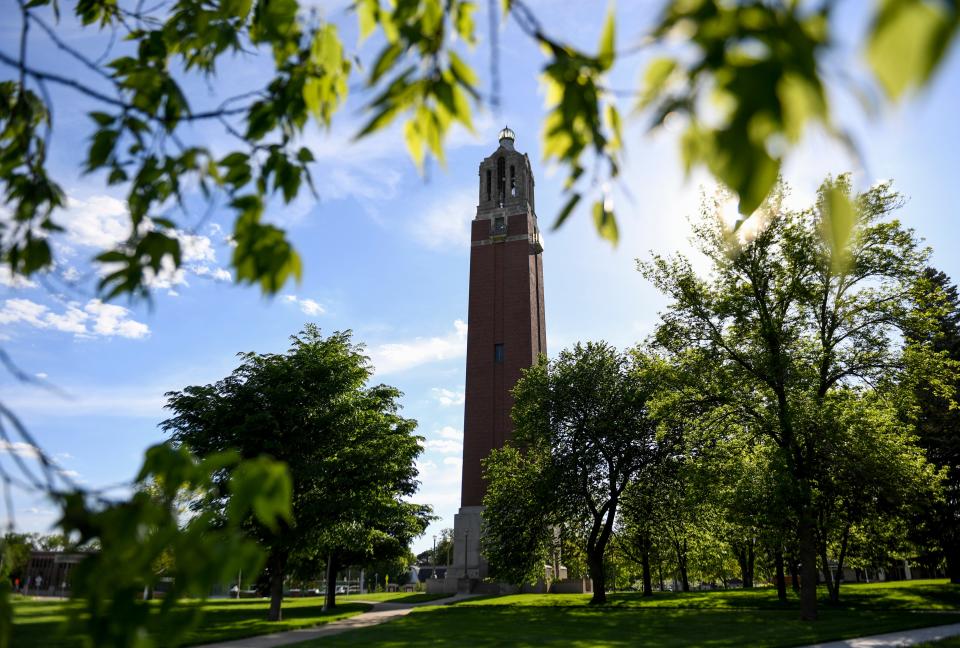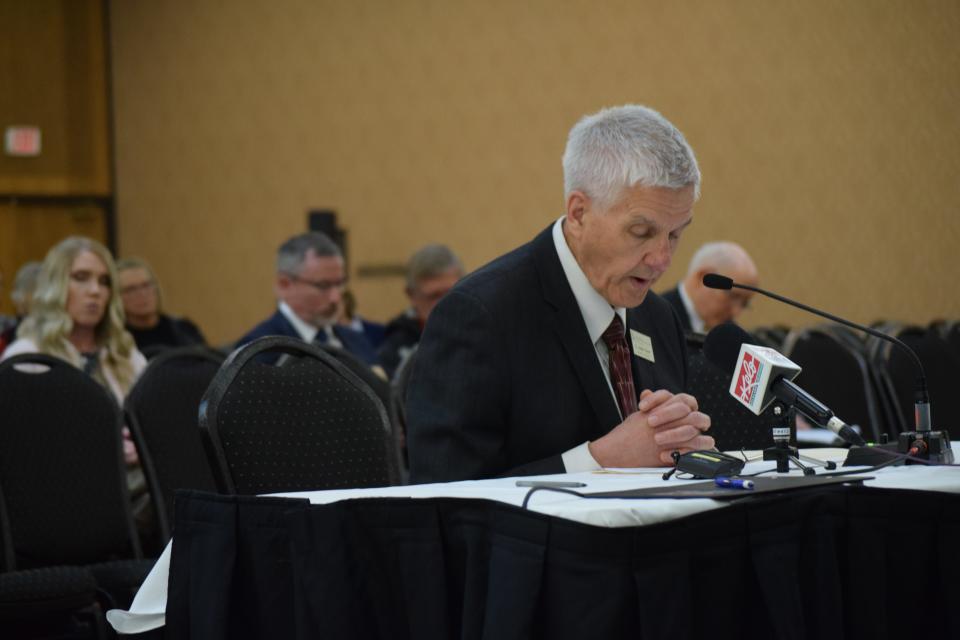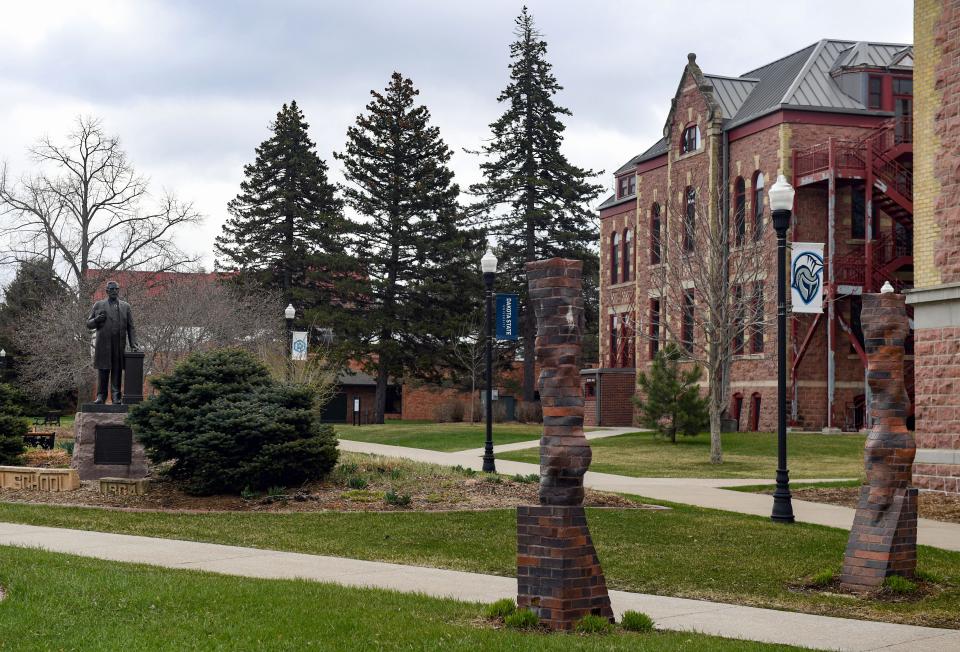How are South Dakota’s colleges filling the teacher shortage and educating future teachers?
Editors' note: This is the third article in a five-part series exploring South Dakota’s teacher shortage and the myriad of ways school districts, colleges and the state are attempting to solve that teacher shortage.
As the teacher shortage sticks around in South Dakota, its colleges and universities are uniquely positioned to educate future teachers to help fill the shortage at the K-12 level.
Colleges’ work to educate future teachers isn’t just limited to the regular education programs and specializations it offers to traditional undergraduates aged 18-22. Several of South Dakota’s colleges offer fellowships, apprenticeships and alternative certifications as part of the solution to the teacher shortage.
South Dakota as a whole has seen an increase of 200 teacher job postings over the last five years, something experts say is driven by pay, politics and the pandemic, for example.
Here’s a look at how those strategies are working in higher education to help K-12 education.
Education programs help South Dakota college students understand teaching
South Dakota State University recently started offering two new bachelor’s degrees, one in elementary education and special education. With this change, 73 students have already declared elementary education as their intended major, and three have declared special education as their major.

That “exceeds our expectations,” said Anne Karabon, director of the SDSU School of Education, Counseling and Human Development, and an associate professor of early childhood education. “We are quite taken aback by it, and very impressed as well.”
More: How South Dakota colleges are educating about consent with new laws in place
Northern State University has two method courses in elementary education at elementary schools in Aberdeen that help NSU students get into classrooms to observe how professional teachers work with K-12 students, and help NSU students work with K-12 students, too.
“We just want to give them a sense of what it feels like so that they’re ready,” said Anna Schwan, interim dean and associate professor in the Millicent Atkins School of Education at NSU. “I think that’s a big disconnect in my experience as an administrator ... Our students graduating from college (aren’t) totally ready to understand everything that goes into teaching, so we’re trying to do a better job of that.”
Fellowships hope to move South Dakota teachers near hometowns
The University of South Dakota recently developed a teacher fellows registered apprenticeship program that allows students at USD in Vermillion or USD-Sioux Falls to work in the state’s public schools in various education positions while earning their education degree. Each fellow will receive an on-site mentor and on-the-job learning.
Funding for the fellowship program includes $6,500 in tuition reimbursement for each year a student participates in the program. The fellows can also apply for funds for expenses like Praxis exams, student teaching insurance and textbooks.
More: Meet the USD alumni keeping the Coyote tailgate tradition alive with their Big Red Bus
Fellows are paid for their work in the classroom and receive wage increases as they progress in their degree, too. This gives USD students the potential to be paid for their year long teacher residency or student-teaching experience.
Research shows that students who student-teach in their home district are more likely to go back there or within 20 to 40 miles of their home district when they become a full-time professional teacher, said Jacqueline Wilber, director of the center for student and professional services in the USD School of Education.
“That’s what we’re hoping in terms of retaining teachers in South Dakota, to get them back near their hometown,” Wilber said.
Apprenticeships at NSU, DSU help move people from teaching aides to full teachers
Nearly 90 teachers’ aides and paraeducators are participating in a new teacher apprenticeship pathway in 50 school districts this school year that will allow them to work toward their bachelor’s degree in education over two years, and eventually teacher certifications, while essentially working as a student-teacher in local classrooms.
These teacher apprentices are taking education courses at a low cost virtually in the evenings, weekends and at other convenient times through either DSU and NSU. DSU has 78 apprentices interested in elementary and/or special education, and NSU has 11 apprentices interested in secondary education.
More: Teacher apprenticeship pathway to begin for K-12 teachers in South Dakota this school year
At NSU, apprentices will get a bachelor’s in secondary education and can also major or specialize in any content areas like math, science or social studies, for example, that they want to teach. Schwan said the program gives these apprenticeships valuable on-the-job training. The apprentices also get mentors at their school, and a mentor at NSU, while training.

South Dakota Department of Education Secretary Joe Graves said those in the apprenticeship are all fitting candidates to fill the state’s teacher pipeline.
“They already live and work in our communities, and they are committed to providing their students with the best possible education,” Graves said.
Graves has lauded universities' efforts to ease the teacher shortage in multiple Teacher Compensation Review Board meetings over the last couple of months and included apprenticeships and college efforts in the list of solutions to the shortage in his presentations.
The apprentices have also already demonstrated skills in working with students, but might otherwise never find their way to becoming classroom teachers, said David De Jong, Dean of the College of Education at Dakota State University.

Seven of those apprentices are working within the Sioux Falls School District, said Becky Dorman, human resources director for the district. Forty percent of the teachers hired in the Sioux Falls School District this year worked for the district in some capacity other than teaching, Dorman explained.
In addition to apprenticeships that help people in other education fields move into teaching, Dorman said the district “grows its own” special education teachers by recognizing employees who have the potential to teach and helping them through the alternative certification process by funding their college coursework to become fully-certified special education teachers.
Alternative certifications help move people into education from other fields
Anyone interested in making a career change to teach students can seek alternative certification from the DOE, which allows people to teach while working towards their full teaching certification.
The Sioux Falls School District hired 23 teachers this year and last year, and 24 teachers in the 2021-2022 school year, who were pursuing their alternative certification in education.
Many of these people were already working in a service profession as a nurse, social worker or youth minister, Dorman said, and realize their passion is to work with students “day in and day out.”
More: South Dakota is 'inflation plus $5K' away from 'great' teacher compensation, school official says
Others have had experience in laboratory settings and teaching was “always in the back of their mind,” and have become chemistry or physics teachers, Dorman said.
USD offers the only online alternative teacher certification program in the state. The 15-credit hour program is flexible, and those pursuing the certification can complete the courses in any order over any period of time. Two students went through the program in 2021, 19 went through in 2022 and 33 are in it this year, according to USD.
One final unique strategy to get more teachers interested in the profession is Educators Rising, a program for K-12 students who are interested in teaching to learn more about the profession and visit a college where they can learn more about getting an education degree.
SDSU, USD, NSU and DSU have all hosted Educators Rising events so far this school year and in the past. Schwan said those events help high school students understand what the education program is like at NSU and what it will be like to be a teacher later in their career.
If you're a teacher who has left the profession, we'd love to hear from you about why as we continue to report on this statewide issue. Email education reporter Morgan Matzen to reach out at mmatzen@argusleader.com.
This article originally appeared on Sioux Falls Argus Leader: South Dakota universities offer education programs, apprenticeships

